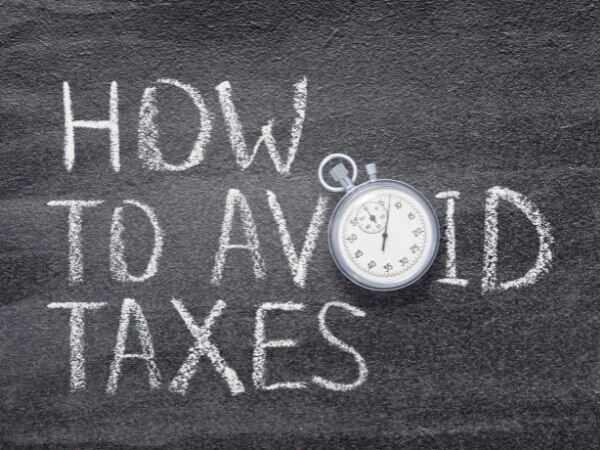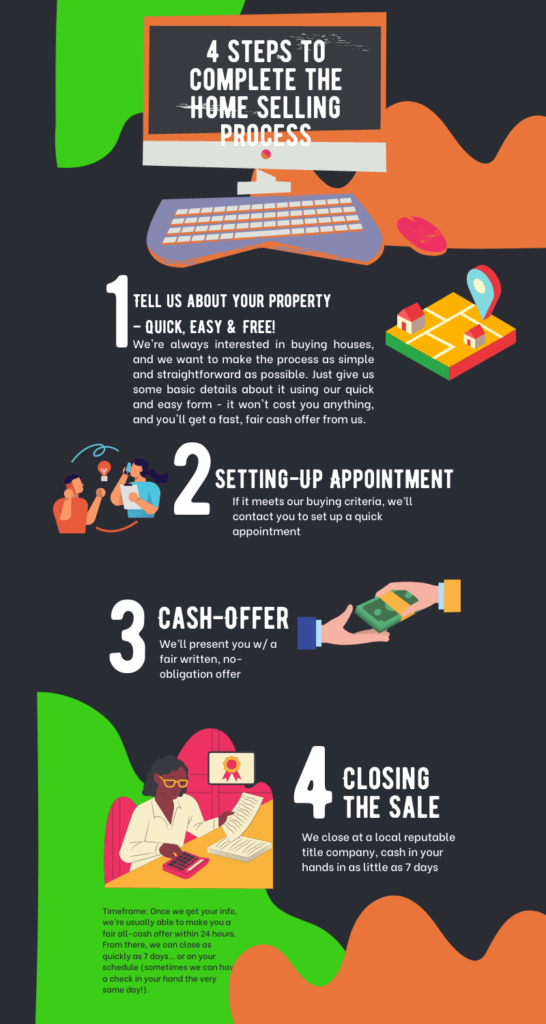
Selling your house in Stockton, California is a big decision, and it comes with its own set of complications. One such complexity is the capital gains tax on house sales. The rules can be tricky, but understanding them can help you avoid or cut this tax.
In this blog, we will cover everything you need to know on how to avoid capital gains tax on house. We will first explain what capital gains tax is and when it applies to the sale of your house. Read on to discover how you can keep more money in your pocket when selling your house and learn how to avoid capital gains tax on house.

Understanding Capital Gains Tax on House Sales
Yes, we know! Capital gains tax on the sale of a house can be hard to understand. but it’s important to know the basic rules and laws in your area. Often, short-term gains are taxed at a higher rate than long-term gains. So if you’re thinking about selling your home, it’s important to plan ahead. Also, main house exclusions can help homeowners save a lot of money on taxes. Make sure you know about these possible strategies. Talking to an expert in real estate tax law can also help you reduce the amount of capital gains tax you have to pay.
Definition of Capital Gains Tax on House Sales
Selling a house can be a good way to make money, but it’s important to know what the tax consequences are. Capital gains tax is a tax on the profit you make when you sell a property. It can be different based on how long you owned the property and how much money you make. To figure out capital gains tax, take the difference between the original sale price and the selling price. Then subtract any costs that are allowed. It’s important to talk to a tax expert or real estate agent who can help you figure out how to pay the least amount of capital gains tax. By using exemptions and credits, you may be able to lower or even get rid of the capital gains tax when you sell a house.
When is Capital Gains Tax Applicable on House Sales?
Selling a house can be an overwhelming process. Navigating the rules and regulations around capital gains tax can add to the stress. Tax is applicable when selling a property that has appreciated in value. But, if you have owned and lived in the house for at least two of the past five years, you may be eligible for exclusion on capital gains tax. It’s important to consult with a tax professional or real estate agent. This will help you understand all the rules and regulations of tax on house sales. By doing so, you can avoid any potential surprises when it comes time to sell your house.
How to Avoid Capital Gains Tax on House When Selling

Selling a house can be a stressful process, and capital gains tax only adds to the complication. But, there are various ways to mitigate or even end this tax burden. Understand the rules and laws of capital gains tax on house sales. This is important if you want to pay the least amount of tax possible.
If you live in the house for at least two years and keep track of how much you spend on home improvements, you may be able to reduce some of the taxes you owe. Also, looking into choices like a 1031 exchange or investing in Opportunity Zones can help postpone or even get rid of capital gains taxes. It’s important to talk to a tax expert to make sure you’re making the most of all your choices and lowering your overall tax bill.
Sell Your Home After Two Years
Selling your house after owning it for at least two years can avoid capital gains tax. This rule applies to primary residences as well as investment properties. Even if you sell before the two-year mark, you may still qualify for a partial exclusion. However, additional rules and requirements must be met to qualify for the exclusion. Consulting with a tax professional is crucial to navigating these rules effectively. Ensures that you qualify for the maximum capital gains tax exclusion available to you.
Convert Your House into a Rental Property
If you want to avoid paying capital gains tax when you sell your house, you could turn it into a rental. This option takes careful planning and preparation. But it can help you pay less in taxes and make more money. To get this tax break, you must meet certain IRS standards, like renting out the property for at least two years before selling it. Renting out your home can also give you financial security and freedom while you wait for the right time to sell or look for other ways to spend. Before going this way, you should know the responsibilities and problems that come with being a landlord.
Use 1031 Exchange
One powerful strategy for avoiding capital gains tax on house sales is to use a 1031 exchange. This method allows you to defer taxes by reinvesting the sale proceeds into a similar property. The new property must be of like-kind, meaning that it is similar in use and value to the one you sold. By leveraging a 1031 exchange, you can defer taxes on your gains and keep more of your money working for you in the real estate market.
To use this approach, you must find a new property within 45 days of selling your old one, and the whole exchange must be done within 180 days. This strategy can be helpful for experienced real estate buyers. But it will still need to be carefully planned and carried out. You might want to talk to a financial planner or tax expert to make sure you meet all the requirements and get the most out of this powerful tax strategy.
Take Advantage of Tax Breaks for Capital Improvements
Making major changes to your home not only makes it look better, but it also lowers the amount of capital gains tax you have to pay. By raising the property’s cost base, you can reduce the amount of gain that you have to pay taxes on. It is important to keep thorough records of all capital improvements made over time. These records should include receipts and invoices for any purchases or labor costs.
Homeowners may also be eligible for tax breaks, such as the primary residence exclusion. This will let you keep up to $250,000 in capital gains if you’ve stayed in the home for at least two of the last five years. Talking to a tax expert can help you make sure you take advantage of all available tax breaks. And of course, pay the least amount of capital gains tax when you sell your house.

Deduct Selling Costs
There are a lot of costs involved in selling a house. This includes such as profits for the real estate agent, closing costs, and advertising fees. Many of these costs, may be tax-deductible, which will lower your capital gains tax bill. It’s important to keep careful records of all costs, including receipts for any work done to improve the property before the sale. If you list these costs properly on your tax return, you might be able to get credits that lower your taxable gain and, in turn, the amount of capital gains tax you have to pay. Talking to a tax expert can also help you make sure you’re taking advantage of all available benefits and keeping your total tax bill as low as possible.
Gift Your House to a Family Member
One way to avoid capital gains tax on house sales is by gifting your property to a family member. This strategy involves transferring ownership of the house before selling it, effectively sidestepping capital gains tax. However, weighing the potential gift tax implications before making this decision is important. A gift tax return may be required if the value of the gifted property exceeds $15,000 per year, per recipient. Consulting with a tax professional can help you understand the complex rules surrounding capital gains and gift taxes and ensure that you’re taking advantage of all available tax breaks.
Frequently Asked Questions
Who pays the capital gains tax buyer or seller?
In most cases, the seller is responsible for paying the capital gains tax on a house sale. The amount of tax owed depends on the profit made from selling the house. However, there are some exceptions to paying capital gains tax, such as if the house is the seller’s primary residence.
To avoid or minimize capital gains tax, it is important to consult with a tax professional who can provide specific guidance based on your individual circumstances.
What is the capital gains tax and how does it work?
Most investments sold after one year incur capital gains taxes reported on Schedule D. The tax rate varies (0%, 15%, or 20%) based on taxable income. High earners face higher rates, while lower incomes may not owe any.
What is the 6-year rule for capital gains tax?
The “6-year rule” allows flexibility in choosing the period covered for treating a property as a main residence. For instance, if rented for 5 years, you can designate it as your primary residence for up to 3 years within that timeframe.
How can I legally avoid capital gains tax?
Maximize long-term investments. Utilize tax-deferred retirement plans. Offset gains with capital losses. Pay attention to holding periods. Strategically choose your cost basis. These actions can optimize your financial strategy and minimize tax liabilities.
Conclusion
Selling your Stockton house can be an overwhelming process, but it’s essential to keep in mind that you might face capital gains tax on the sale. Fortunately, there are ways to avoid paying this tax and keep more money in your pocket. By meeting certain criteria, such as selling your house after two years or converting it into a rental property, you may be able to legally avoid capital gains tax. Deducting selling costs or using a 1031 exchange can also help. Be sure to consult with a tax professional to determine the best strategy for your unique situation. With some careful planning and knowledge of the tax laws, you can sell your home without worrying about capital gains tax.



Contact Us
We would love to hear from you! Please fill out this form and we will get in touch with you shortly.




